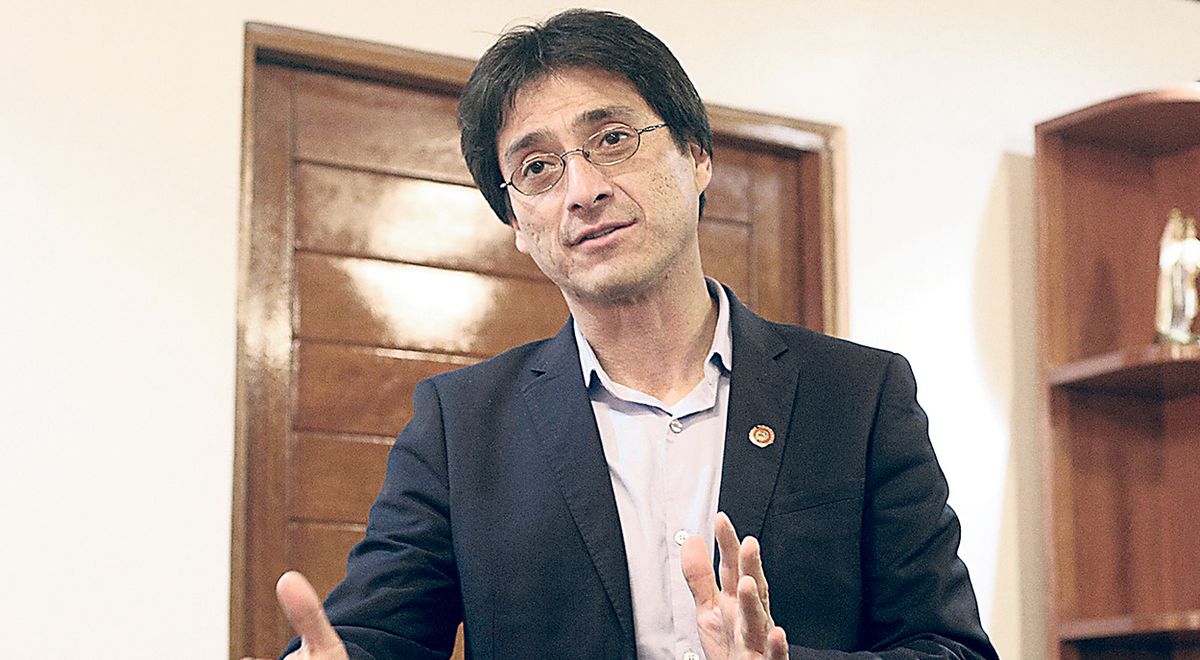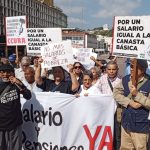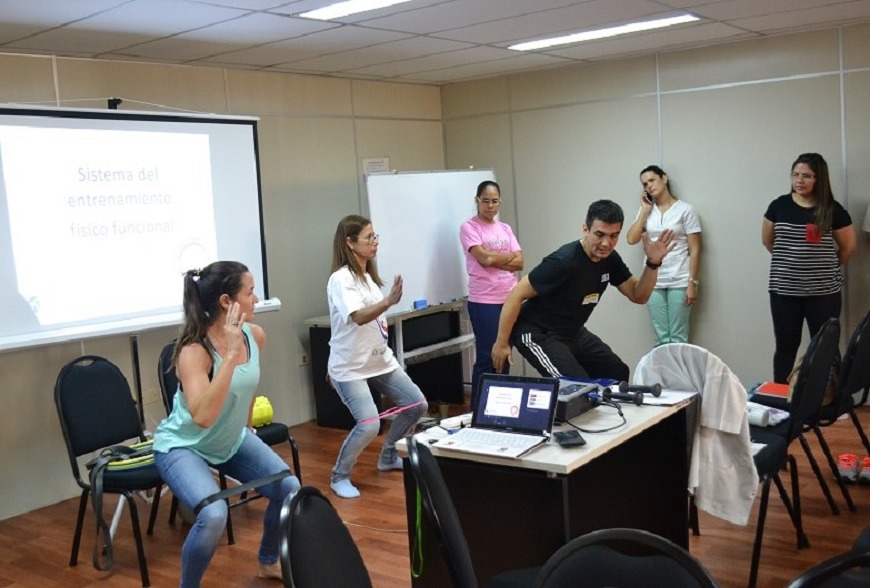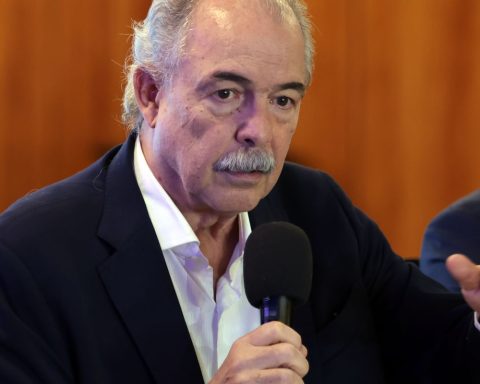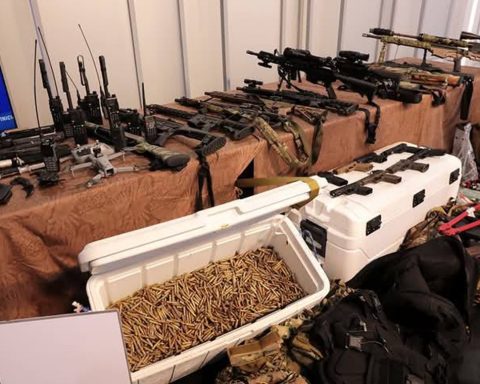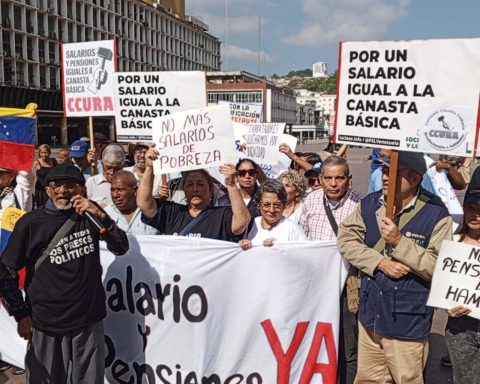The president of the National Assembly of Regional Governors (ANGR) and governor of Cusco, Jean Paul Benavente, explains in this interview the reasons that led the regional presidents to opt for early elections as a way out of the political crisis. The solution, as he points out, is in the hands of Congress.
—Why did you come to the conclusion that the only way out is to advance the elections? What was the drop that spilled the glass?
—Well, in principle, that we have been giving signals, over and over again, especially to the President of the Republic and to Congress, so that they can establish some measures that favor the governability of the country. We have asked the president to demarcate responsibility for corruption, against the acts imputed to him. In addition, we have asked that he be able to summon the fugitives from justice so that they can be brought to justice. Along the same lines, we have asked for a broad-based reconciliation cabinet that can address the priorities of our country. And we have asked the Congress of the Republic to establish basic and necessary reforms so that we can advance in the development of our country, in political and electoral matters, and in the execution of projects.
—For you, the president, until now, has not disclaimed corruption?
“There was no demarcation. Even though he was in his own presentation on July 28 before the Congress of the Republic, he just didn’t read that paragraph calling for and urging fugitives from justice to stand up for themselves. And we all know that that was part of his presidential speech.
—The National Assembly of Governors also requests a change of Cabinet for a conciliatory one. How was your relationship during this time with Prime Minister Aníbal Torres? Should he leave the Cabinet?
—In principle, our relationship has been within the framework of respect. As governors we are part of an Executive, which is divided into three levels: the national government, the regional government and the local government. So, as part of that process, there was a respectful relationship with the premier. But we also observe the confrontation that the Executive has with the Legislative and it seems that it has been embodied in the premier as a point of contention between these two powers of the State.
—But should Aníbal Torres continue or not in the Cabinet?
—That will be evaluated by the president. If he (Aníbal Torres) is the point of contention, between these two levels – the Executive and Legislative – and on top of that he has presented a letter of resignation (which was not accepted by the president), obviously, I think, we have to evaluate to generate a Cabinet of reconciliation.
—Going back to the issue of early elections, what do you expect from Congress? The president of the Constitution Commission, “Nano” Guerra, has been against this proposal.
—First, that they debate the proposal, because they have two bills (for early elections) in the Congress of the Republic and those bills, obviously, deal with an exit as was done in the years 2000 and 2001. agreement to give a democratic solution with an early election, respecting the constitutional framework and the investiture of the Congress of the Republic itself. At least make a debate of that exit. From my perspective, any path is going to lead us to that, be it vacancy, resignation or impeachment. On the one hand, there is a fragmented and polarized vocation, and if there is a vacancy, the one who is going to be held responsible is the Congress of the Republic, and the first thing that the other population, which is against the Congress, is going to ask for is that they also resign. the Congress men. Conclusion: new elections.
—Do you think that in the regions the citizens want an electoral process to be carried out?
—It is an exit that is consolidating. The population is confused at the moment and deserves to be given adequate information about the possibilities of getting out of this political crisis. The latest polls have shown that 70% of the population wants them all to go. I think that this is generalized at the country level, in some regions more and in others less, that is the average.
—What would have to happen, in case the elections are brought forward, so that “everyone leaves” is not a way to elect them?
—That is where the package of reforms that this Congress of the Republic should approve comes in, convening certain institutions and personalities, and debating some minimal and necessary reforms: first the advancement of elections and then the issues related to the law on political parties and the law of electoral processes to see and evaluate whether there will be congressional re-election or not. I mean, those kinds of things could help democracy in our country.
—Of the reforms you mention, which is the determining factor?
—The issue of strengthening political parties and insisting on primary elections, and the need for us to have representations with well-defined electoral districts. There are experts who can be called upon to solve the problem.
—The fact that they ask for early elections, does it mean that they are marking distance from the president?
—The only thing I can tell you is that early elections are an alternative. The majority of governors propose that it could be an interesting conditioning factor to resolve this issue. If Congress decides not to approve the early elections, at least we will have motivated a debate, and that the president feels obliged to set up a reconciliation Cabinet.
—In case there is early elections, will you apply?
I don’t know how my colleagues will do. I personally wouldn’t.
—What do you think about the continuity of the Minister of Transportation, Geiner Alvarado, who is being investigated for being part of an alleged criminal organization?
—Really, there are serious research topics that fall on some ministers. The situation has become more complicated. It is important to say it with total neutrality: the same speed that the Prosecutor’s Office is having for the case of President Pedro Castillo, it should also have for other cases that have been stalled for many years. ❖
